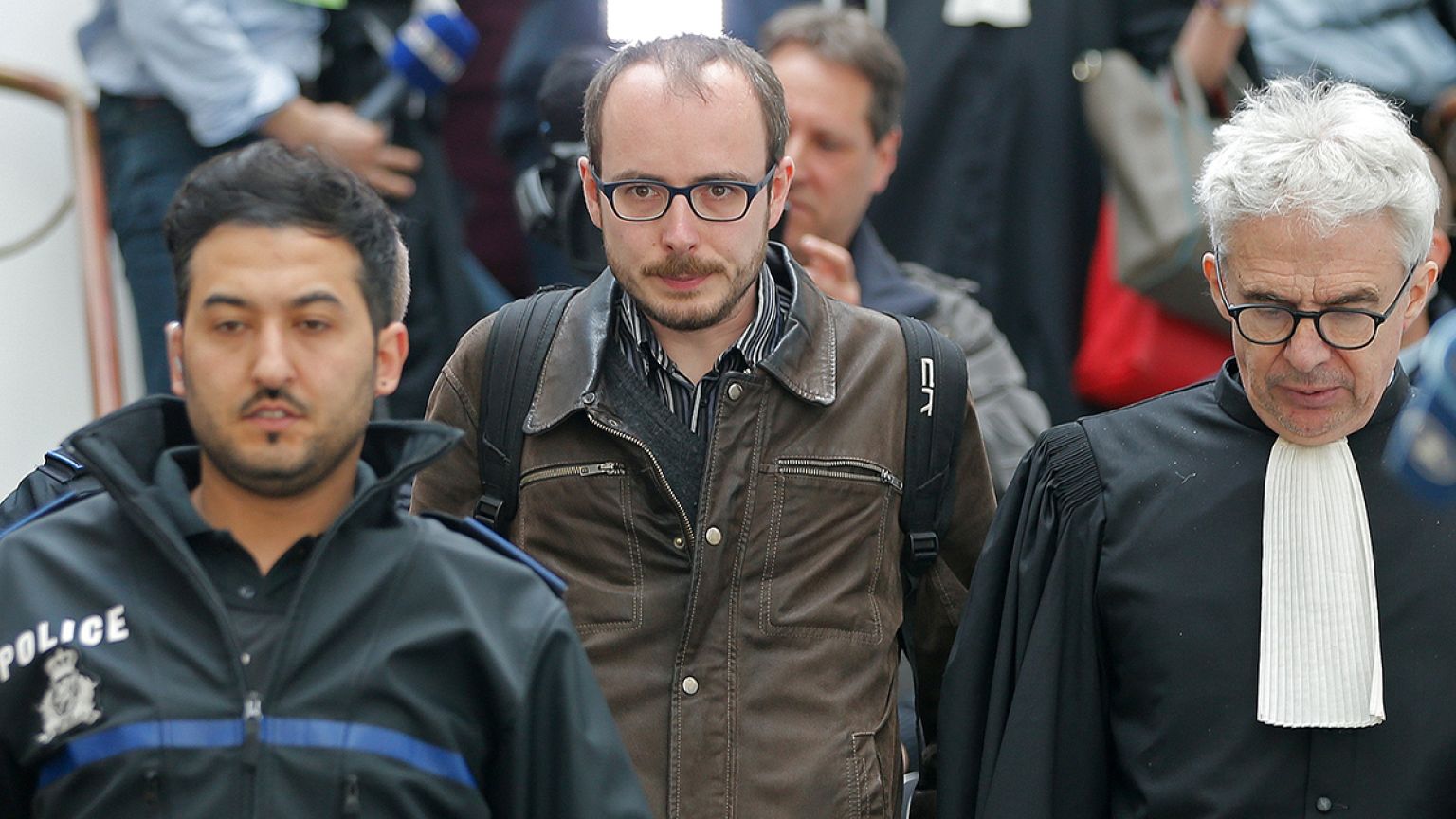A summary of the main points about the LuxLeaks scandal
The very latest news
A trial opened in Luxembourg on Tuesday (April 26) against two ex-employees of the accountancy firm PricewaterhouseCoopers (PwC) and a French journalist.
The defendants are accused of leaking information about international tax deals in a case that became known as LuxLeaks.
The details that emerged in the media, and which put the spotlight on tax deals struck through Luxembourg, have led to calls for major reforms of global financial rules and regulations.
The Grand Duchy had to fend off claims that it had conspired with multinational companies seeking to avoid paying tax elsewhere in the EU.
Those under the spotlight denied any wrongdoing.
Trial begins of ‘LuxLeaks’ whistleblowers https://t.co/ePuYe4BD3E
— Seamus Kearney (@seamuskearney_) April 26, 2016
A study by the European Parliament has shown that EU countries lose between 50 and 70 billion euros every year because of tax avoidance by companies.
A controversial trial
Civil rights and media groups insist that the accused are whistleblowers and should be given special protection from the law.
They argue that the revelations were important as part of the campaign to clean up the business world and regulate how countries like Luxembourg handle tax affairs, especially concerning foreign companies.
Analysts say the Luxembourg authorities have to tread carefully, defending the rights of financial institutions to keep client data confidential but also show it is serious about being seen as a state of law, where suspect deals will not be condoned.
The Luxembourg economy relies heavily on the financial services sector.
#Luxembourg leaks: nation under spotlight over tax avoidance claims http://t.co/eb6PtxHYU7 #LuxembourgLeaks #luxleaks pic.twitter.com/CJE1WyXeaX
— euronews (@euronews) November 6, 2014
Some of the criticism of the trial has come from the International Consortium of Investigative Journalists.
The ICIJ Director, Gerard Ryle, slammed the trial as an affront to press freedom.
“For a founding member of the EU to bring charges against a journalist in relation to reporting that is clearly in the public interest shows a lack of respect for the important role journalism plays in holding the powerful accountable,” he said.
“For a country to also charge two alleged whistleblowers shows Luxembourg has not yet caught up with public opinion.”
Who is involved in the case?
Antoine Deltour: A French citizen accused of passing on data about PwC clients to the media.
Edouard Perrin: A French journalist accused of using the information in a television broadcast in 2012.
Raphael Halet: Another former PwC worker accused of supplying information used in the LuxLeak revelations in November 2014.
The International Consortium of Investigative Journalists (ICIJ): The information was released through the media in an operation coordinated by the ICIJ.
The ICIJ was also involved in the recent release of the Panama Papers about tax havens and offshore accounts.
RT
euronewskearney: MEPs start their own <a href="https://twitter.com/hashtag/LuxLeaks?src=hash">#LuxLeaks</a> probe <a href="http://t.co/6QTmWGvzVQ">http://t.co/6QTmWGvzVQ</a> <a href="http://t.co/PYyEBxeeGU">pic.twitter.com/PYyEBxeeGU</a></p>— euronews (euronews) March 10, 2015
Prison and big fines possible
The three on trial in Luxembourg face a maximum sentence of five years in prison if convicted, plus judges can also impose fines of more than a million euros.
Critics say the country’s legislation that protects whistleblowers should have been used in this case.
But the businesses named in the leaks and Luxembourg officials argue the laws only relate to the uncovering of “illegal” activities including corruption and money laundering.
Often the debate is over the fine line between what is technically legal and what adheres to the spirit of the law or what is morally right.
In the case of LuxLeaks, the companies involved maintain that what was revealed was legal.
Thomas Piketty on Juncker and the #LuxLeaks scandal: “It's not enough to apologise” http://t.co/wxx716fMpz http://t.co/I2qCVoChed
— euronews (@euronews) October 16, 2015
The political fallout
The leaks made life very difficult for Jean-Claude Juncker, the man about to take the helm of the European Commission when the story broke.
He was the prime minister of Luxembourg for 19 years and was in charge of the country’s rules and regulations at the time the deals in question were struck.
Juncker shrugged of all criticism, constantly repeating that no laws had been broken.
However, he did vow to support new EU rules aimed at making tax regulations for businesses more transparent.
Juncker was and still is heavily criticised over the affair.
European Commission president
JunckerEU</a> fights back in <a href="https://twitter.com/hashtag/LuxLeaks?src=hash">#LuxLeaks</a> row <a href="http://t.co/XrjGMjdUSv">http://t.co/XrjGMjdUSv</a> <a href="http://t.co/FOzqDUqJlt">pic.twitter.com/FOzqDUqJlt</a></p>— euronews (euronews) November 12, 2014
What has been done since the scandal broke?
Not enough say the critics.
But European officials insist steps are being taken in the right direction and individual countries must do more to combat any improper practices.
The EU’s anti-trust watchdog is also investigating several EU states, including Luxembourg, over deals struck with multinational firms.
European Parliament shuns committee of inquiry into #LuxLeaks (video) http://t.co/WD9OXRp1Ja Via
euronews</a></p>— SF Sutcliffe (sfsutcliffe) February 7, 2015
Under proposed new rules, the European Commission wants large companies with activities in the EU to publicly disclose tax and financial data relating to their operations, with country-by-country reporting.
This would also include data relating to activities in countries considered to be tax havens.
The details made public would include taxes paid and accrued, as well as profits, turnover, revenue and the number of workers.
Member states and the European Parliament would have to approve the new rules.
The EU Financial Services Commissioner, Jonathan Hill, has been quoted as saying: “By using complicated tax arrangements, some multinationals can pay nearly a third less tax than companies that only operate in one country.”
“Our proposal to increase transparency will help make companies more accountable.”
Brussels has been accused of being too soft on tax evasion, while some business groups have spoken out against public financial disclosures.















